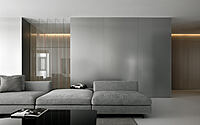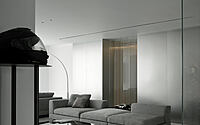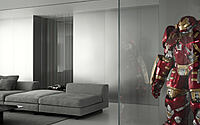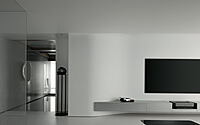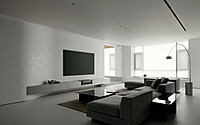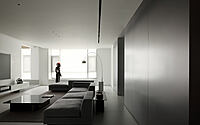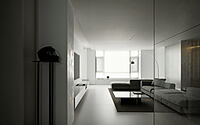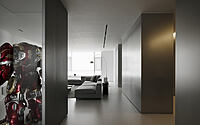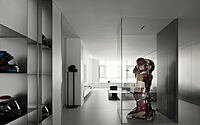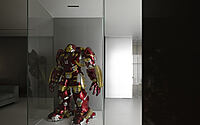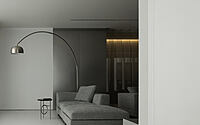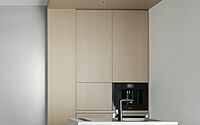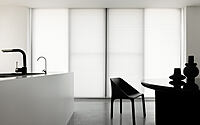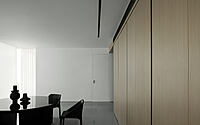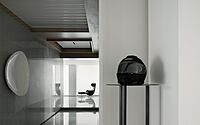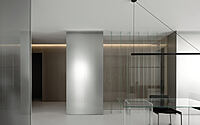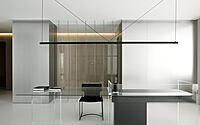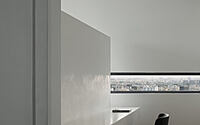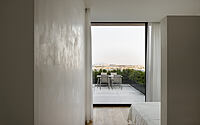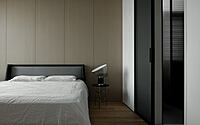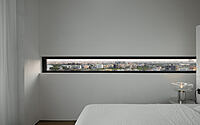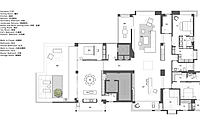Penthouse in Chaozhou by AD Architecture
Penthouse in Chaozhou, China, is a minimalist home designed in 2022 by AD Architecture.


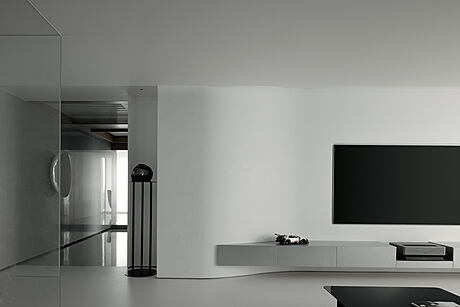
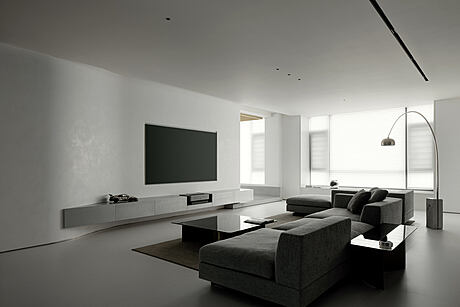
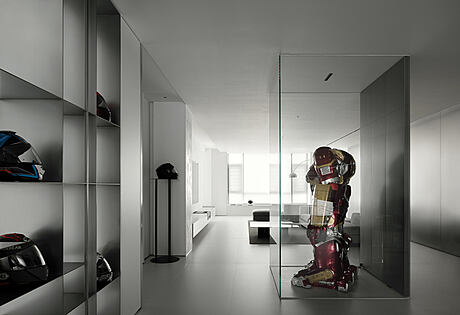
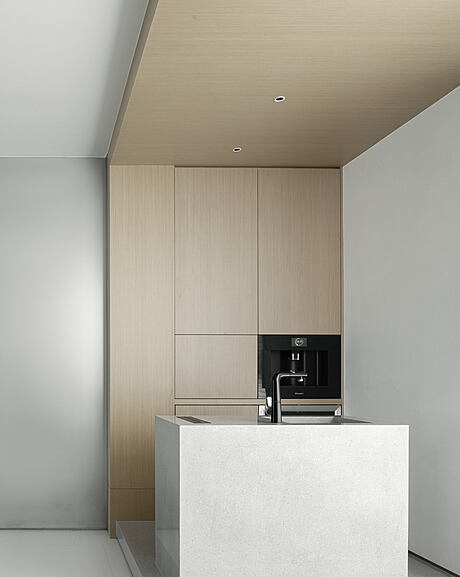
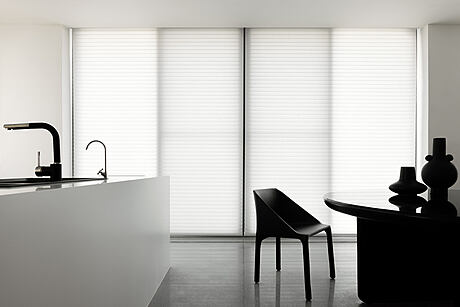
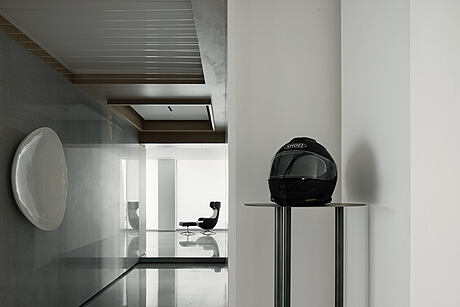
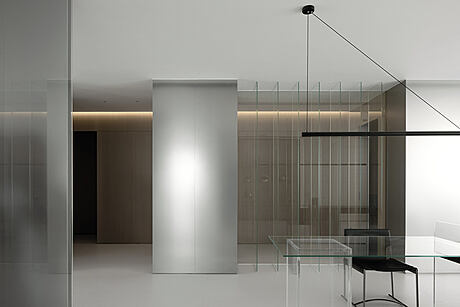
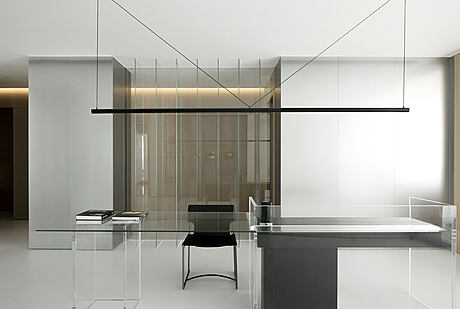
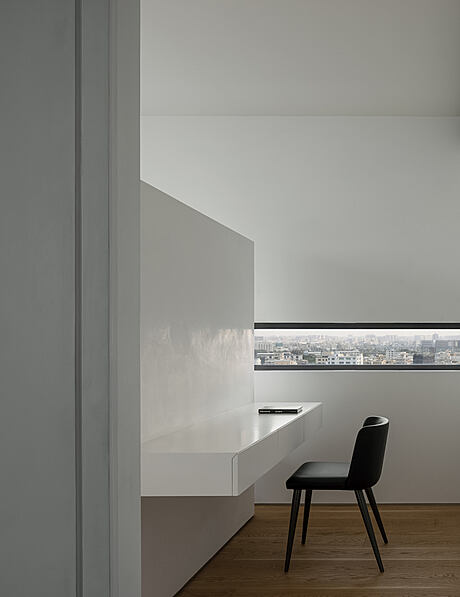
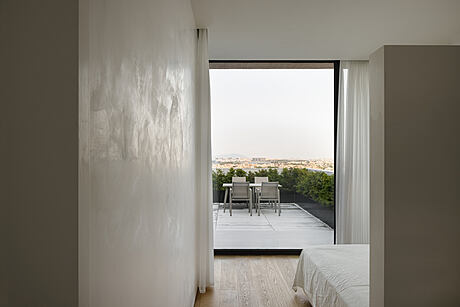
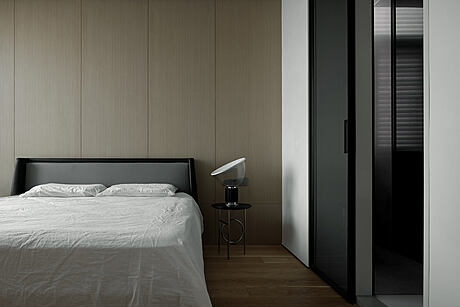
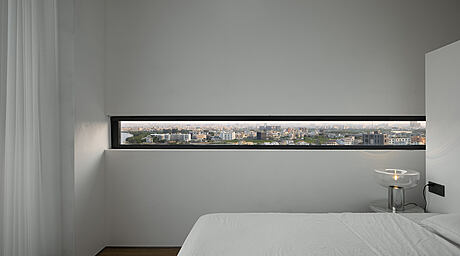
Description
Rationality
Rational aesthetics, advocated by the Bauhaus in the 20th century, has influenced AD ARCHITECTURE to some extent. Minimalist functionality, which makes functionalism less mechanical, emphasizes people’s senses and experiences as the protagonist in a space. A state of calmness AD ARCHITECTURE explored in this project is not only for the space but also for the dweller, which expresses the practice’s attitude towards design and reflection on the city’s evolution.
Background
This penthouse is the home of an overseas returnee who is passionate about car culture. It is located in Chaozhou, a city with a long history. Sitting on the top of a tall building, the apartment enjoys a full view of the river and a 270-degree view of natural landscapes in Shantou, Chaozhou and Jieyang. The simple residential structure and favorable natural resources gave the design team much freedom to conceive the home.
Undefined space — Ice & Fire
In addition to motorcycling, the young owner is also keen on car racing. He is passionate inside, and looks calm on the outside. AD ARCHITECTURE hoped to design a dwelling that could represent the occupant’s unique personality. For this, the design team conceived a natural, harmonious and relaxing living environment above the city, which redefines luxurious apartments. People are the protagonist in space, especially in a living space. The designers didn’t try to create a space that everybody likes, but one that suits the user’s taste. It’s a tranquil living environment with quietness, nature and Sunshine. A living space truly belongs to the dweller himself.
Openness & Restraint
Open layout, coupled with minimalist restrained aesthetics and large areas of blank surfaces, reveals a sense of serenity and inclusiveness. White color shades produce a background for highlighting the owner and his hobbies, and also create a calming home that evokes a restrained state of mind, sensitive yet pure emotions and a minimalist lifestyle, which cater to the personality of the occupant.
Natural Experience
Dominant white coatings, stainless steel and wooden veneers embody the combination of hardness and softness, generate a clean and natural ambience, while also showing the materials’ warmth. The large solid-colored sintered stone floorings in open areas give a natural and peaceful feeling, while wooden floorboards in the bedrooms create a warm and delicate sleep environment. This kind of restrained design language results in a comfortable space.
Free Plane
Based on the spatial pattern, functional areas are connected by transitional spaces. Taking advantage of the existing steel structure space at the large balcony, the design team integrated family communication center with landscape balcony to form a natural and comfortable dining space.
The 8-meter-long transitional space at the entrance not only links living room with dining room, but also effectively enhances the experience. Terrazzo extending from floor to wall strengthens a sense of boundary, making distinct areas clear. Upon opening the door, the occupant can immediately experience a free spatial ambience. Artworks on the wall help guide the circulation route. In the center, there’s an artistic and trendy toy inside a glass box — a huge Hulkbuster armor. This glass box allows the owner to place his favorite objects, generating a strong display effect and voicing his personality as well.
Sofa area, together with open study, display cabinet, bar counter, car racing simulator and tea bar, forms an open spatial realm. Functional areas are distinguished by glass boxes and the floor’s height difference, without absolute division. The design aims to create a free and relaxing flowing space to enhance interaction in between different functional areas.
The semi-open relationship among resting area, dressing area and washing area in the bedroom strengthens an open and free living experience.
Ambiguity
Chief designer Xie Peihe believes that the design of residence and office doesn’t necessarily have to be confined to their inherent attributes, especially when working from home becomes a new normal in the post-pandemic era. In such a context, different space typologies tend to have no definite boundary and hence shouldn’t be restricted to certain design styles. He thinks that designers should never stopping exploring more future possibilities of space and contribute to forging the future of cities.
Photography by Ouyang Yun
Visit AD Architecture
- by Matt Watts